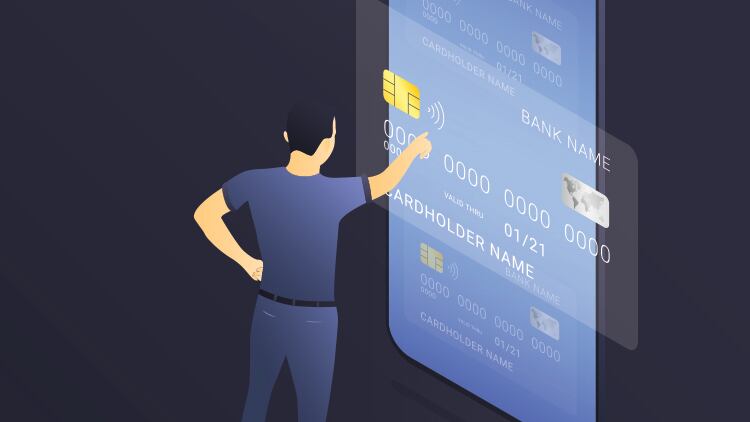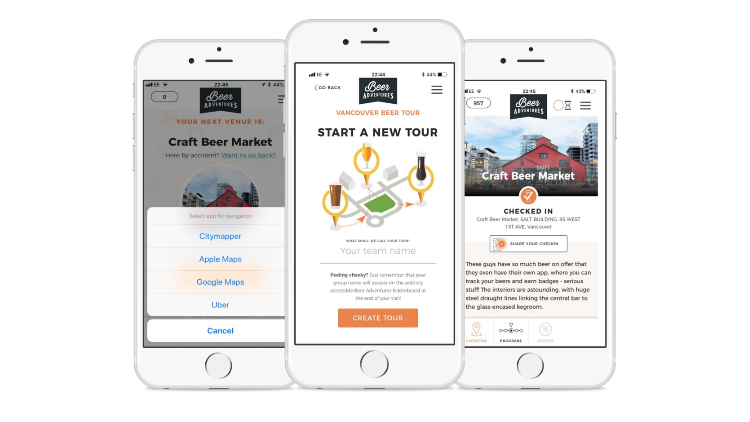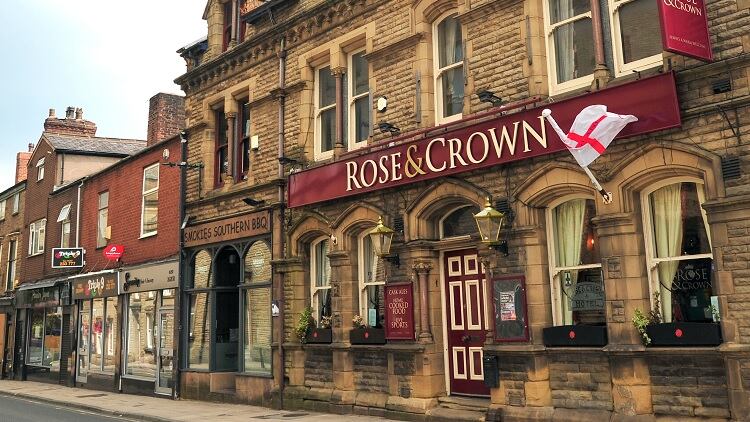Cash is king no more. In 2006, 62% of payments made in the UK were with cash. A decade later, that figure had fallen to 40%. By 2026, just 21% of transactions are expected to be with cash (source: UK Finance). Now, the technology that dethroned cash – first chip & pin and then contactless cards – is being usurped by another: mobile phone payments.
Brits splurged £975m on transactions through NFC-enabled (Near field communication’ or NFC is the method of wireless data transfer that enables people to make payment with their phones) smartphones in 2017, a year-on-year rise of 328% (data source: Worldpay). The pub and restaurant trade was responsible for £121.8m (12.5%) of that, making it the second biggest sector for mobile payments after grocery. Clearly, cash is seen as a faff by many punters; flashing a phone is far easier.
“The convenience and immediate benefit of being able to pay quickly and securely has been more of a hook for our app than any loyalty scheme,” says Kyle Gibson, digital marketing manager at City Pub Group, which launched a payments and rewards app in January. “In China, mobile payments already outstrip cash. That is surely a sign of things to come here.”
How GDPR affects mobile ordering
The EU’s General Data Protection Regulation (GDPR) matters. Any European business that accesses, stores or uses customer data must ensure it is compliant with the new the rules, which came into force in May. Failure could result in a fine of up to €20m (£17.8m) or 4% of annual turnover, whichever is greater. Ouch.
Pub operators need to ensure that all apps and external companies they use to gather data are GDPR-compliant. Operators holding data on customers gathered before GDPR came into force on 25 May need to ask for consent to use that data again, clearly stating how they intend to use it. Failure to do so could be very costly indeed.
■ Avoid getting caught out with our downloadable guide to GDPR. Visit https://bit.ly/2w5nHNq for details.
Benefits for operators
Most of the big players – including Mitchells & Butlers (M&B), Greene King and JD Wetherspoon – are now pushing mobile payments via apps. Customers can find a pub, book a table and manage, divide and settle a bar tab with a few swipes of a screen. The benefits to operators are arguably even greater. What are they? And how can they be maximised?
The mobile revolution gives operators
greater access to a commodity so valuable that some have called it the ‘new oil’: customer data. “In our increasingly connected world we know more about our customers than ever before,” says David Charlton, commercial director at Zonal Marketing Technologies, which includes Whitbread, Fuller’s and Stonegate Pub Company among its clients.
“The key is how we harness the data and then use this to our advantage. The smartest brands and companies in our data-driven age are using customer insights to drive loyalty, engagement and revenue. Making offers personal and brand-authentic are key to unlocking customer loyalty, with 48% of women ‘always’ or ‘often’ influenced by special offers when choosing a restaurant and 30% of under-30s driven by special offers.”
It’s crucial those offers are targeted and based on insight. By analysing data gathered through an app – eg, types of food and drink bought on past visits, special requirements and information such as date of birth – operators can up their chances of converting an offer into sales.
Capturing accurate data
There’s more than one way to access this information, of course. Gathering data from guests that log into your Wi-Fi system can pay handsomely, says Julian Ross, CEO of Wireless Social, a Wi-Fi hot spot and visitor analytics specialist whose clients include Gresham Inns, Bierkeller and EastZEast.
“Pub chains and independent inns leading the way in mobile technology don’t just have a fantastic guest Wi-Fi experience, they’re also capturing accurate data to gain true customer insights and an understanding of customer trends such as dwell time, visit frequency and number of visitors,” he says. “By analysing this they can then send out targeted, relevant marketing that results in increased revenue.”
Then there’s the reams of information society shares on social media. Many are prepared to share personal details and preferences – when they were born, where they live or are going on holiday, favourite drinks, food, football teams, musician, etc – in return for content, offers and promotions that appeal to them.
The opportunity is huge, says Paolo Andrigo, senior manager at the consultancy Accenture. “As a drinks brand or pub operator you can leverage the power of all the social channels,” he says. “For example, if you know a person has a passion for a certain soccer team you can run targeted promotions that will drive customers to pubs that are showing a match and offering a discount on your brand of beer.”
Running special deals
During the build-up to this summer’s World Cup, City Pub Group ran a deal in partnership with Heineken, letting users of the operator’s app gain a free pint. “We had about 2,000 redemptions in the three weeks before the World Cup – it was great for driving footfall and engagement,” says Gibson. The operator has run a similar campaign in partnership with Sipsmith.
“During the Heineken campaign, we were attracting 500 new members a day and now have about 15,000 members. We’re pushing use of the app through Wi-Fi, clubs and events in our pubs and point-of-sale (PoS) material. Between 10% and 12% of our payments are now through mobiles. If we can keep pushing it, I can see it getting to 20% or 30%.”
Like City Pub Group, M&B used payments, booking and PoS integration specialist Flyt to allow its pubs to take mobile payments. Flyt CEO Tom Weaver says its clients currently see as much as 25% of transactions going through apps. And this is just the beginning. Worldpay research shows that, at present, just a third of smartphone users are taking advantage of their phone’s NFC payment capabilities.
Of course, handling cash has a cost, so early adopters of app payments stand to make savings there. There are other savings too. “M&B underwent a three-year digital transformation, to improve its customer engagement with very promising results,” explains Weaver.
“The company migrated all of its 16 different brand websites onto a single platform and introduced real-time pricing and the ability to make a reservation and order a takeaway online. It also introduced new tills, handheld ordering and integrated payment using Flyt technology. Following the three-year rollout, the company saw a threefold increase in tables booked online, with 50% of customers now booking online.”
Streamlining procedures
There are clear cost benefits to bringing 16 disparate businesses – including All Bar One, Toby Carvery and Ember Inns – under one digital banner. Such initiatives also help streamline booking, check in and payments, freeing up staff to focus more on better customer care.
“An app takes away some of the anonymity of web or phone bookings, and provides the possibility of an automated ‘check-in’ system – the operator doesn’t have to lift a finger, but has a ‘live’ view of bookings and which tables are free,” says John Trueman, CEO of guest management systems specialist Quadranet Systems.
“One of the big challenges is customer no-shows – phone or internet reservations where customers don’t turn up. A good reservations system sends out an SMS message – when the user replies it automatically updates the reservation to confirmed or cancelled.”
Complexities of integration
A key challenge for any operator is systems integration. All of the big tech suppliers to the hospitality sector claim to offer solutions allowing till systems, external payment and booking apps to talk to each other. According to Accenture’s Andrigo, the complexity of integrating these solutions is growing.
“This isn’t just ‘business to consumer’ – it’s also about ‘business to business and employee’,” he explains. “You can use mobile apps for training and monitoring footfall. You can use technology to monitor the dispense equipment to ensure beer is being served at the right temperature, CO2 levels are correct and so on. Technicians can then be contacted automatically when there is a problem. All of the big European brewers are investing in this.” Mobile payments, it seems, are just the beginning.




